
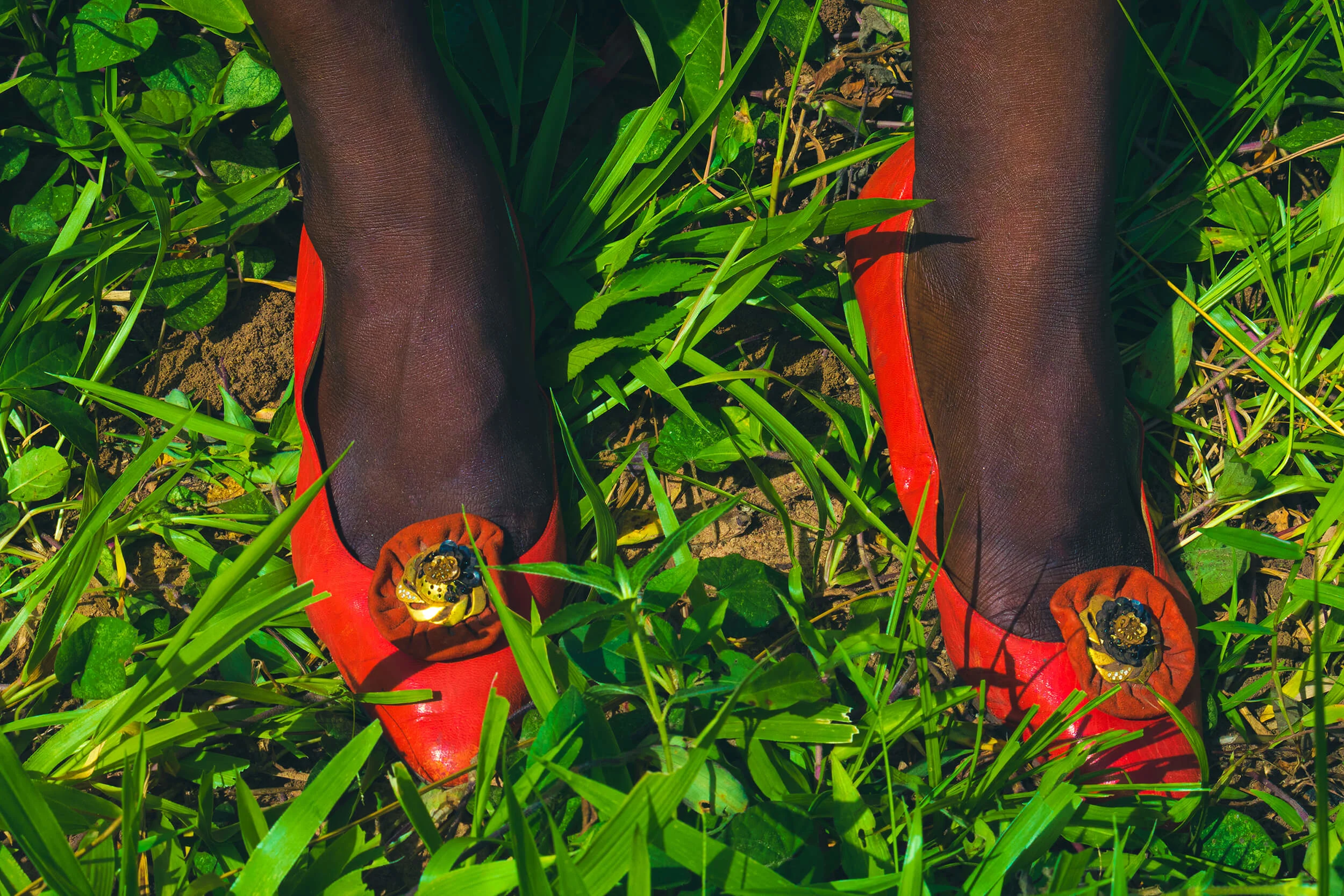
For Nigerian photographer Adaeze Okaro, family has always been a catalyst for creativity. Whether through her dad, who encouraged her to find her confidence by buying her a camera, or her mum, who Adaeze observed as she got ready for church, oozing beauty and class, the young artist often notices family ties popping up in her portraiture. She tells Ify Obi how, despite forging her own path in the field and finding her own style, so much of what she saw and did growing up is living on in her work.
At the age of six, Adaeze Okaro’s love for photography started to take form, partly thanks to her dad, as well as an old playmate. “My dad and I had traveled to Abuja. we spent some time at his friend’s house. He had a son around my age so we started playing,” she remembers. “I noticed he had a camera and I thought to myself ‘what is that?’ I think it was a Canon – it was a film camera with a built-in flash.” The young children spent the entire day taking pictures. Adaeze was moved, and on returning to their home in Enugu, she spent time teaching herself photography, drawing inspiration from the works of Malick Sidibé.

However, it wasn’t until 2018, a year after her father’s passing, that she moved to Nigerian capital Abuja and began exploring photography professionally, with her dad’s lessons on finding confidence in her creativity as a backbone. “My dad loved the idea that I was into the visual arts and photography. He used to buy me cameras himself. Each time he traveled, he’d come back with a camera for me.” As she talks about him, she speaks in a quiet tone, but her sadness is palpable. She doesn’t say much about him, perhaps to keep her thoughts of him sacred.
She tells me that living in Abuja “just changed everything,” and the decision to move there was one she knew she’d make eventually. She grew up in Independence Layout, an area in the Enugu metropolis of South Central Nigeria, which possesses a certain balance of calm and chaos: sprawling buildings, a bubbly nightlife and a myriad of churches. Like any major city, it exudes character and life but not quite in the rigorous way of the more densely populated Lagos. Independence Layout is the world Adaeze Okaro was born and raised in, and the only world she had known.


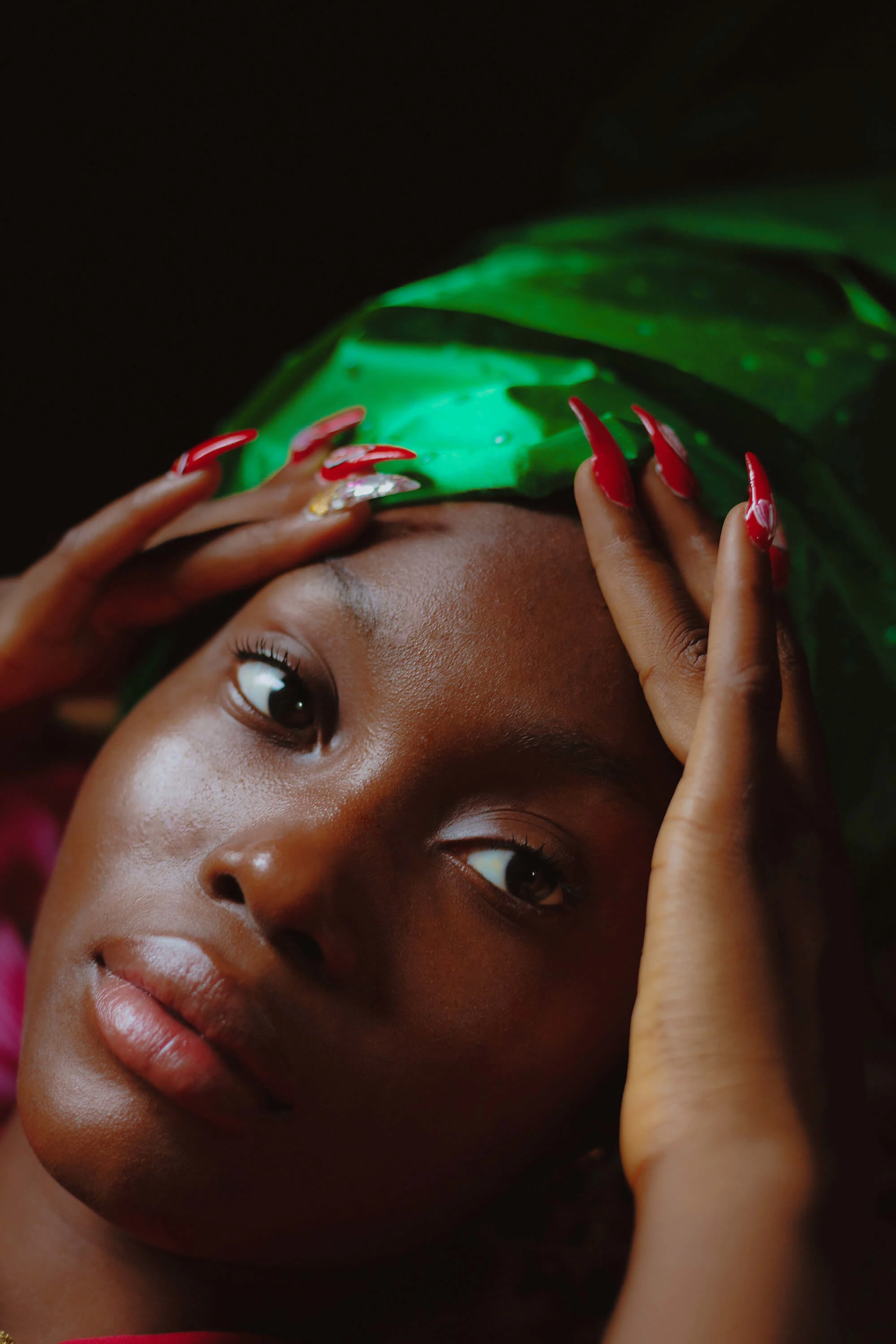
Each time my dad would travel, he’d come back with a camera for me.
“To be honest, I just wanted to be somewhere different,” she says. Adaeze is currently 198 miles away from her family home in Enugu, yet fragments of her family life are ever-present in her approach to fashion, portraiture and documentary photography. With old photos as a guide, Adaeze marries stylistic cues from her mum’s younger self – who she describes as “very stylish” – with her own accessible yet striking take on imagery. “She made everything look beautiful,” she says with eager admiration. “I love the way she used to wear her hats, how she used to wear her makeup. Her style is amazing.”
She recalls Sunday mornings with her mum in the Okaro household, reminiscent of a somewhat coming-of-age ritual common between Nigerian mothers and daughters. “I used to watch her getting ready for church. She’d wear her perfume and ask me to pick out shoes or a particular gele to complete the look.”
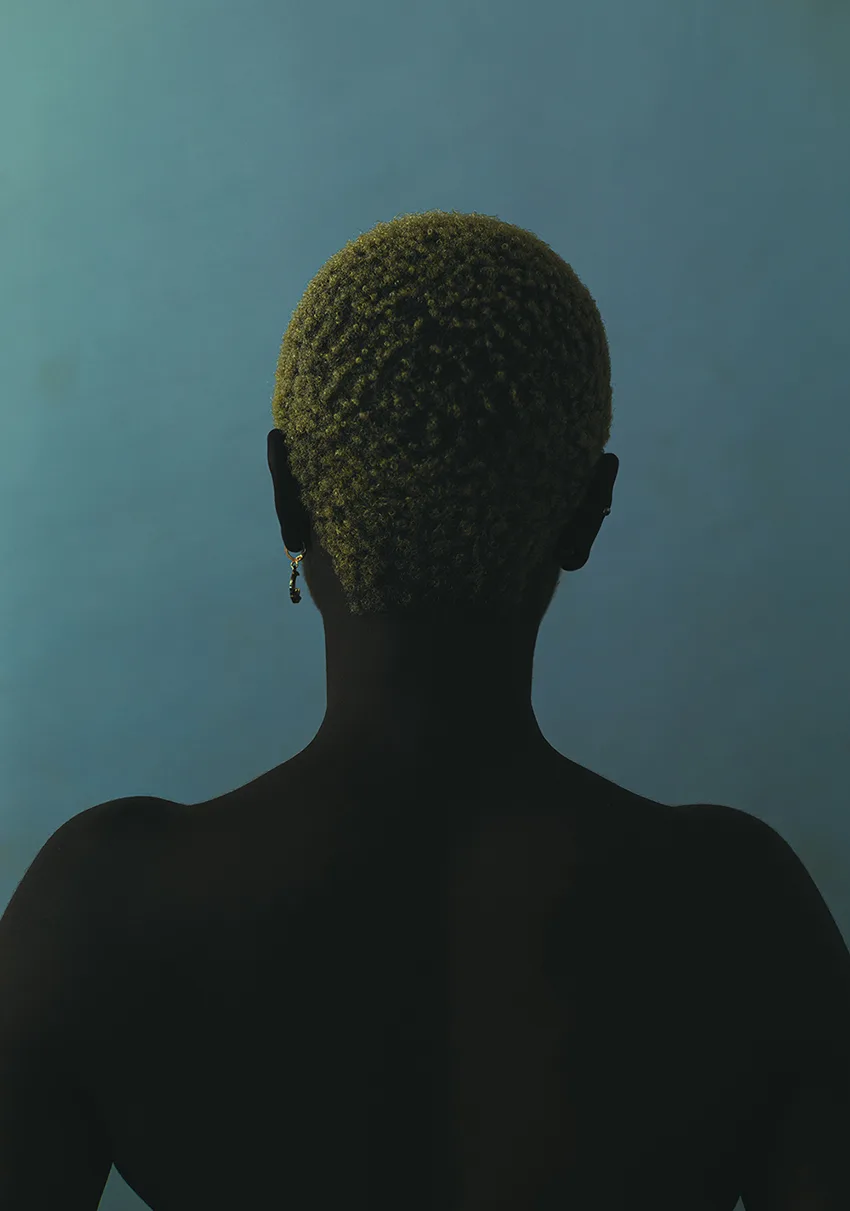

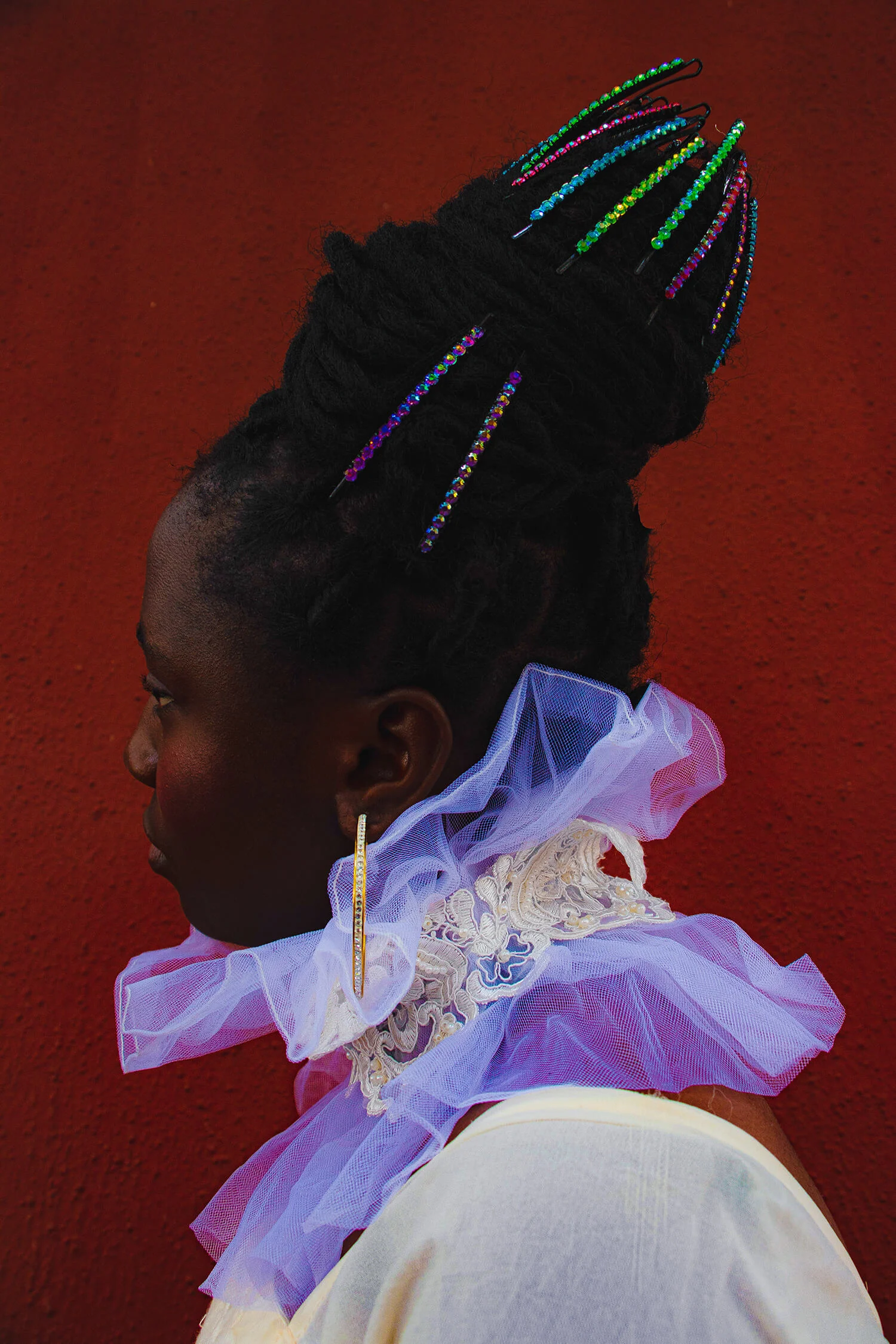
I used to watch my mum getting ready for church. She made everything look beautiful.
In old family photos, what strikes her the most is the softness the subjects emanate. “Everything was so easy,” she says. “I know people often say to never judge a book by its cover. But with my dad, how he appeared in photos was the way he was in person – calm, gentle and easy-going.” Ease is a notion that informs her work today from her relations with subjects to the overall feel of each final photo. “I think that really brings out the quality of my work,” she says. “You just need to be super gentle and understanding.”
Adaeze is usually left enamored by the hairstyles sported back then, particularly the Afro. “I just really love how they made use of Afros,” she says. She avoids the word “imitates,” but traces of inspiration can still be sensed in her work. The series Fro Angels focuses on the kinky curls sported by her subjects, while another series documents a young woman with an Afro commanding her space.
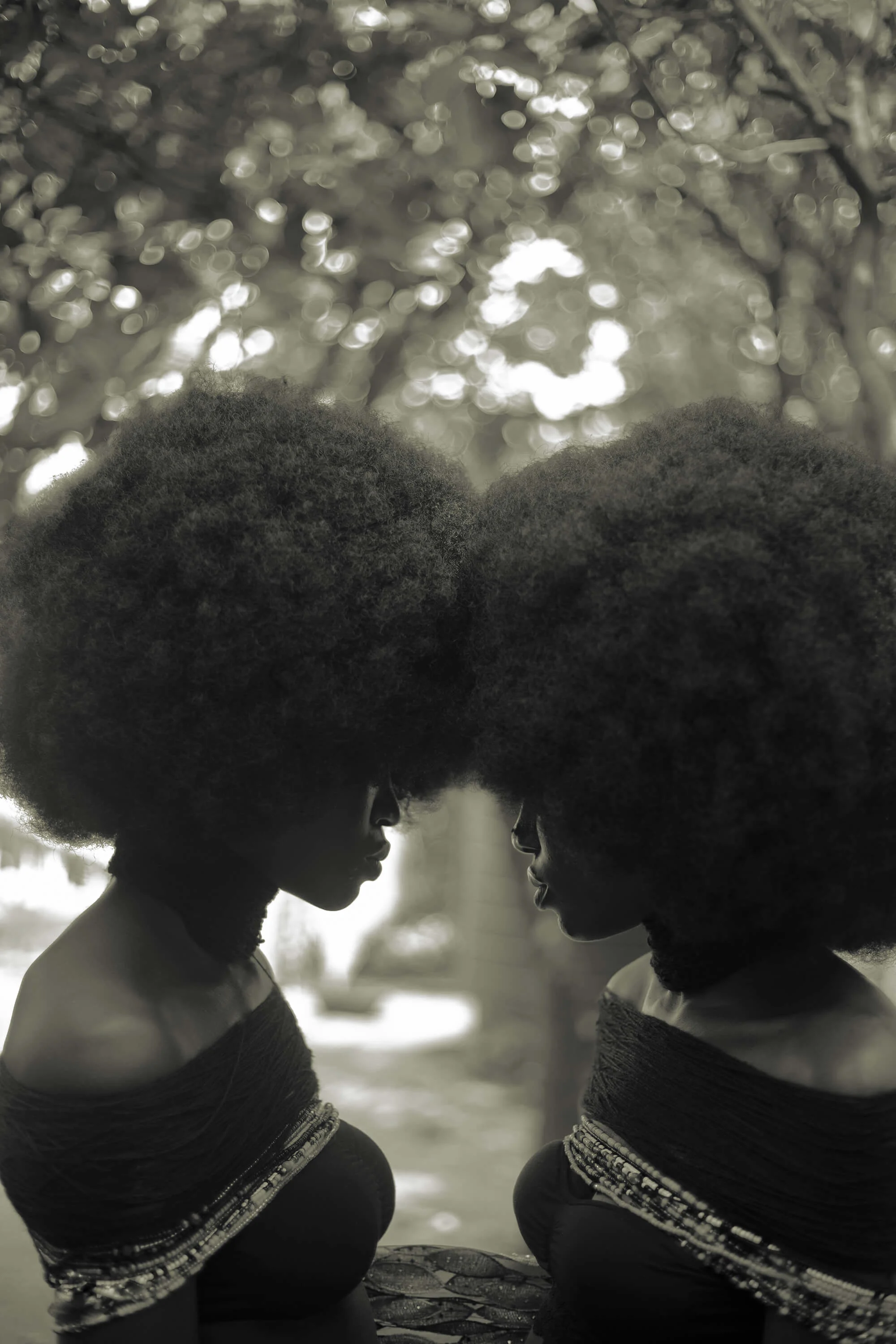
In Nigeria’s male-dominated photography landscape, Adaeze’s work brings a unique eye to the subtleties of the female experience in beauty and identity. Certain intricate choices are reflective in her work and not only makes them eye-catching but important in the overall narrative of each series, such as the placement of makeup and choice of styling, which she mostly oversees herself. One image shows her subject, Alexandra, fully and confidently immersed in herself as she holds your gaze with the vibrancy of her multi-colored nails and colorful outfit to match.
“Most of my life, I’ve been a plus-sized woman living in Nigeria,” she says. “These portraits are an effort to highlight women in Nigeria who are often underrepresented in the media and advertising. I made Alexandra the center of my work. She’s dark-skinned and really beautiful. I just wanted to show her being happy and colorful in her space.” Her use of color features prominent accents of blues and reds, a conscious decision she attributes to her mother yet again, whose favorite colors have never changed. “My mum has always loved red and blue.”
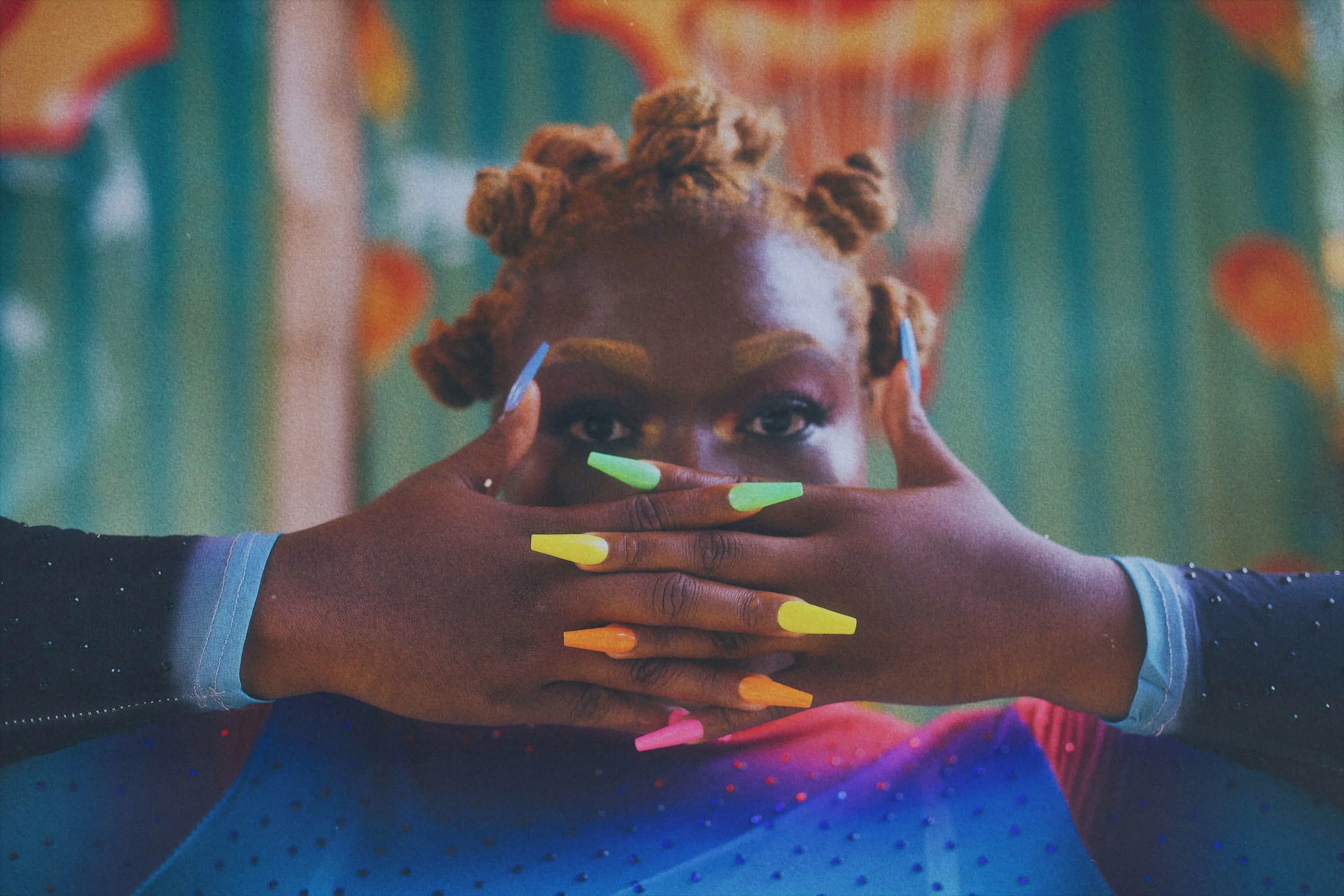



In March 2021, Adaeze was selected for the Adobe Stock Artist Development Fund, which offers its eight recipients a list of creative briefs to select from and work toward. One of the optional briefs that Adaeze picked was Celebration of Self – a befitting choice given her mission to capture the beauty in everyone she photographs.
Since moving to Abuja, Adaeze tells me, she has also developed a renewed understanding of the importance of spaces. “We are deeply connected to our surroundings much more than we sometimes realize,” she says. “So, I love to capture my subjects in their personal spaces, often in their bedrooms.” Photographing her subjects in spaces they know so well is just one of the reasons they appear so comfortable in her work, and it is testament to how skilled Adaeze is in inspiring in her subjects the same ease and confidence that her parents had when the camera was pointed their way.

